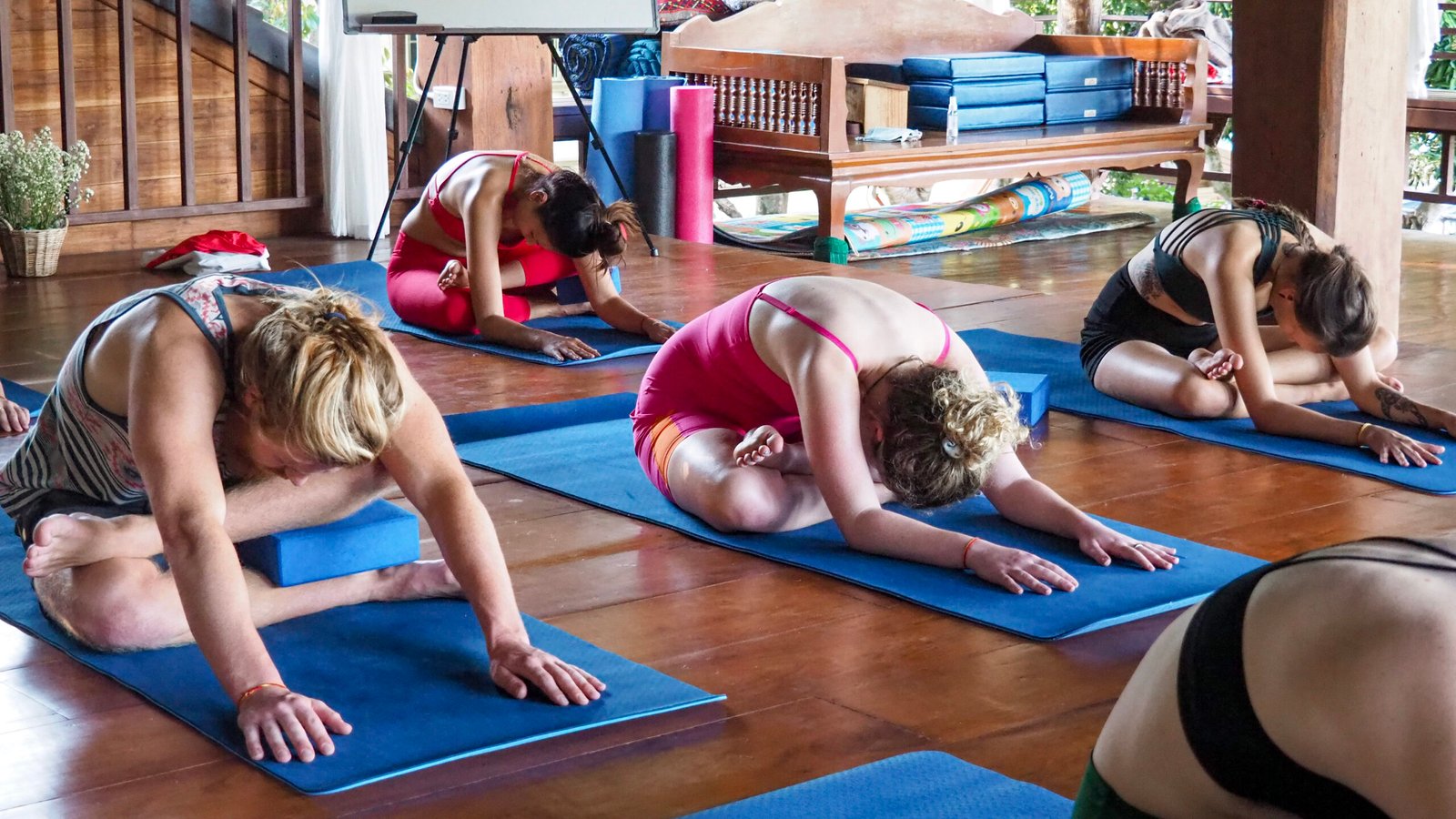If you are a yoga enthusiast or someone who has been practicing yoga since school, this is for you. You may have come across the terms, Yoga Nidra and meditation, while skimming through yoga texts as well. There are people outside this realm, who are totally confused regarding these two terms. Now, it is not your fault, as these two modalities touch upon one another, have similarities, but are quite different as well. Yoga Nidra to be exact is a guided meditation. As a part of the 200 Hour Yoga Teacher Training In Chiang Mai, you will learn about these forms in details.
Yoga Nidra and Meditation
Let us delve into the details here. Yoga Nidra is a style of relaxing sleep. It is a meditation as well, in which the practitioner floats into a sleep-like condition. You can call it conscious sleep. It is a state in between, where you are neither sleeping fully nor fully awake. You will be taken through guided visualizations, to reach this state. There will be no constraint, when you are in this deep meditative state. The entire practice aims to create a right atmosphere around you, so that you can heal yourself.

At the Yoga School in Chiang Mai, you will experience perfect bliss in this state of mind, just like a feather that has been just shed. Meditation on the other hand, is a broad term. It comprises Yoga Nidra. It is basically a practice, where the individual’s state of mind is on a heightened pedestal. The most popular meditation techniques, which you will come across today are mindfulness meditation, guided meditation, concentrated meditation, and so on. There are various breathing techniques alongside these, that you need to practice to bring about the right effect. After you have completed meditation, and have excelled in disconnecting from all earthly ties, you will be able to sail through, to the ultimate stage called Salvation. It is the pathway, through which you can realize the true nature.
After knowing about these two realms, in detail, you may seem a bit confused. However, there need not be. You will definitely find certain similarities between these two modalities. Both are known to alter the human states of consciousness, through positive affirmations and breathing techniques. The practice leads to alteration of the consciousness. Additionally, they can affect both halves of the brain. You can use these to practice alongside passive yoga poses, to promote stillness around you. So, you can get multiple benefits, while practicing these. Now, let us get to the difference part.
Differences Between Yoga Nidra and Meditation
In the 200 Hour Yoga Teacher Training In Chiang Mai the teachers will explain to you and guide you through both these processes. You should know about them, so as to teach your students the right practice, with proper explanations.
- In most meditation practices, you will be in seated position. The legs will be crossed, and the hands will rest on the knees, with palms facing upwards. You will generally assume the Dhyana mudra, during meditation. Yoga Nidra is practiced, in lying down position. Teachers will be there to guide you through the relaxation process. It is a state, when you will be stopped from falling asleep fully, and also a state where you are not awake in the true sense of the word.
- Meditation is often challenging for beginners, as you have to stop all your thoughts for a while, and look deep within. There will be external noise around you, but you have to stop your mind and senses from absorbing the same. Quietening the chatter around you can be challenging. Yoga Nidra, being a guided practice, you will be taken through the process by the trained experts at Yoga Samaadhi. There are several stages in Yoga Nidra, and you do not have to swim through them alone, and that is one of the biggest differences.
- As a part of the Yoga Nidra class, your teacher will guide you. You will be asked to fix an intention. Once you set that, you will have a goal to follow. After you set up your goal, things become easy. You will be asked to focus your energies at every stage, like focussing on the breath, body sensations, and emotions, and so on. You will soon enter a state, which is dream-like, but not quite one. Additionally, you do not have to make any effort. Meditation is something, that you practice solo. You can gaze at a candle or practice breathing techniques. In the latter, there has to be some effort on your part.
- Yoga meditation is an active process. You have to learn to concentrate all your efforts on a single point. The last state is the receptive one. However, Yoga Nidra is less rigid in nature. You will be using more props and blankets, to ease out the process. You will learn to let go of all your worries, and the mind and the body will both become lighter. You are not striving hard, but you are just floating away, with the universe. The physical body is in a complete state of relaxation. But the mental body will relax and observe the process.
- Yoga Nidra has an ultimate goal, and that is to send the body into a deeply relaxing state. Meditation is on the other hand, a more active process, in which your concentrated efforts will lead to a highly conscious state of mind. It is more spiritual in form.
So, now that you know, about the similarities and differences, it will be better for your learning. You will learn about the same in complete detail in the Yoga School in Chiang Mai. There are ample resources to show you the positives today. You just have to know, how to embrace them. Now, coming to which one you should go for. There is no right or wrong here. It mainly depends on your state of mind and experience. Some practitioners feel that Yoga Nidra comes easier. Moreover, it is a great start for beginners. So, go with the flow.









